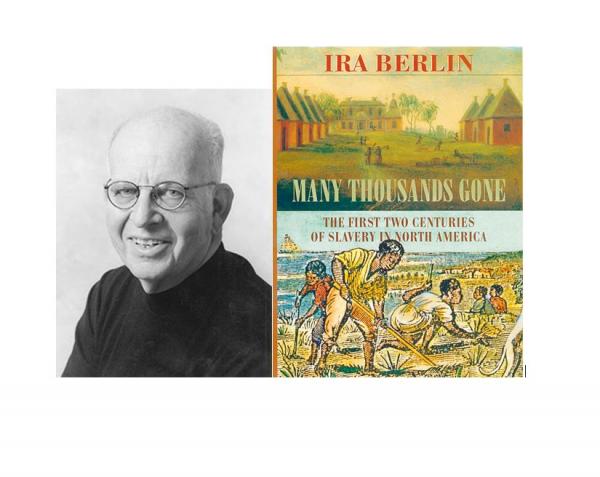Statement from National Endowment for the Humanities on the Death of Ira Berlin

University of Maryland/ Harvard University Press

University of Maryland/ Harvard University Press
WASHINGTON, D.C. — The National Endowment for the Humanities (NEH) mourns the passing of Ira Berlin, distinguished historian of slavery and emancipation, who was the recipient of several NEH grants and served on the National Council on the Humanities starting in 2000.
In 1971, Berlin received from NEH what was then called a Younger Humanist Fellowship, which supported his research on the lives of free blacks in the antebellum South, a neglected topic within the burgeoning field of African-American history. Three years later he published his influential book Slaves Without Masters, which showed that the notorious black codes passed into law during Reconstruction were based on similar practices developed to restrict the liberties of free blacks before the Civil War.
Berlin, a distinguished member of the group of historians who argued in recent decades for the centrality of slavery in the American story, made enormous contributions as the founding director of the NEH-supported Freedmen and Southern Society Project. Its main activity has been to edit and publish Freedom: A Documentary History of Emancipation, 1861–1867 a selection of records, mainly letters, from the National Archives, illuminating the experiences of slaves and former slaves. Influenced by the rise of social history, its primary subject is not federal policy but “the central elements of the process by which men and women moved from the utter dependence slaveholders demanded but never fully received, to the independence freedpeople desired but seldom attained.” Founded in 1976, the project has published four stand-alone thematic works in addition to six volumes in its Freedom series with more still to come.
“Ira Berlin was not only a pioneering scholar in his field. Through the Freedmen and Southern Society project, he laid the foundation for other scholars working to understand the end of slavery and what came afterwards, deepening our understanding of this critical moment in American history,” said NEH Chairman Jon Parrish Peede, in a statement.
A long-serving professor of history at the University of Maryland, Berlin is remembered with great fondness by colleagues and former students who have been celebrating his books—especially Slaves Without Masters, the Bancroft Prize-winning Many Thousands Gone (1998), and Generations of Captivity (2003)—as well as his exceedingly generous spirit.